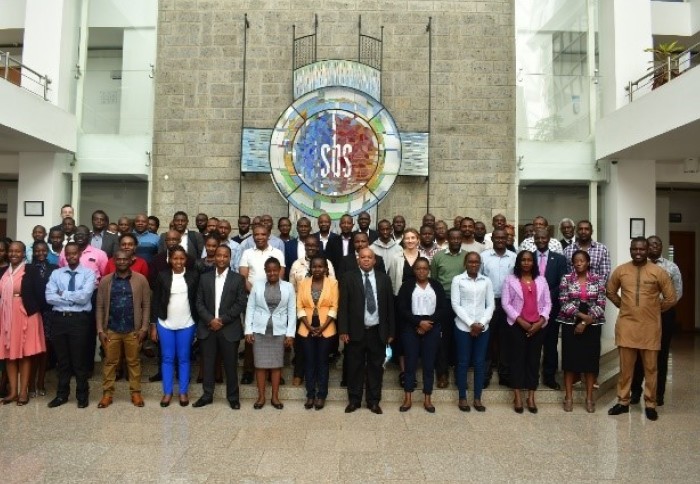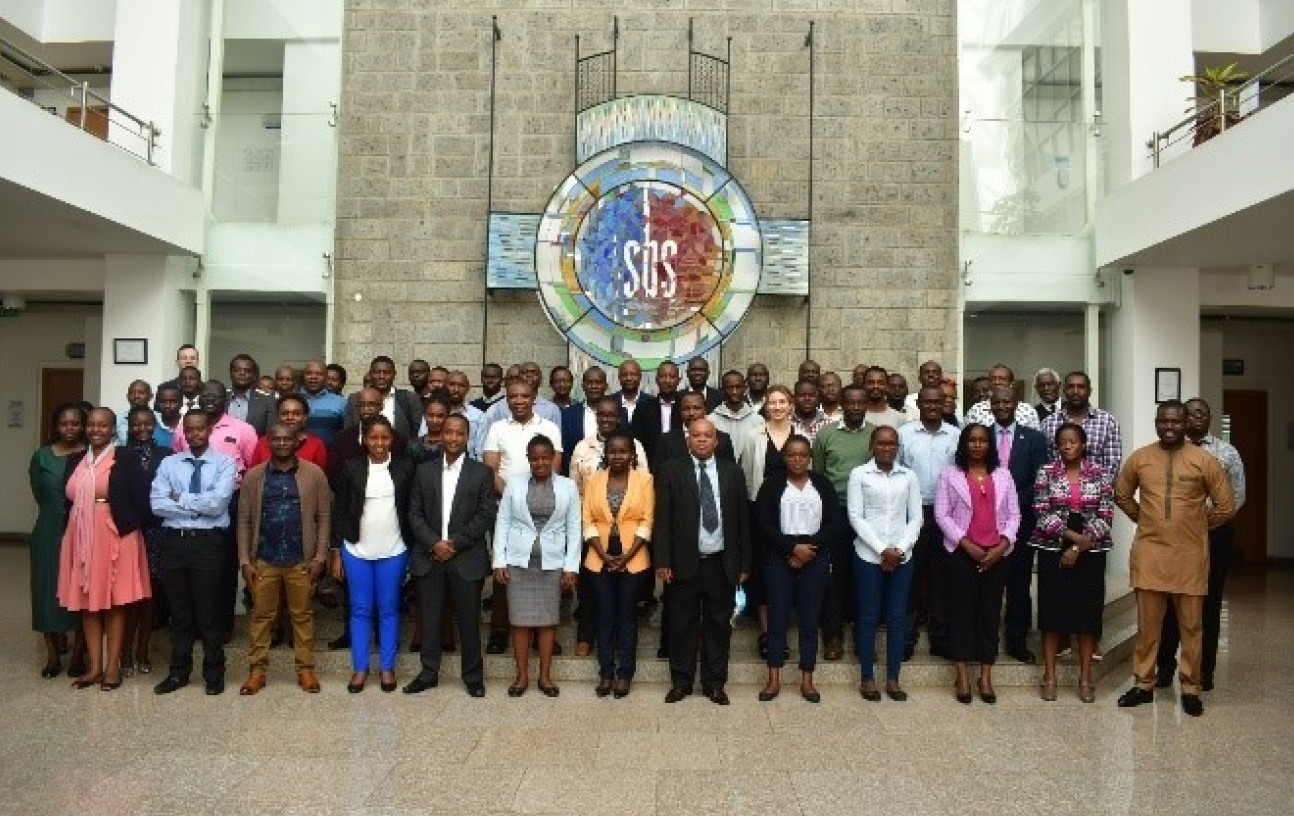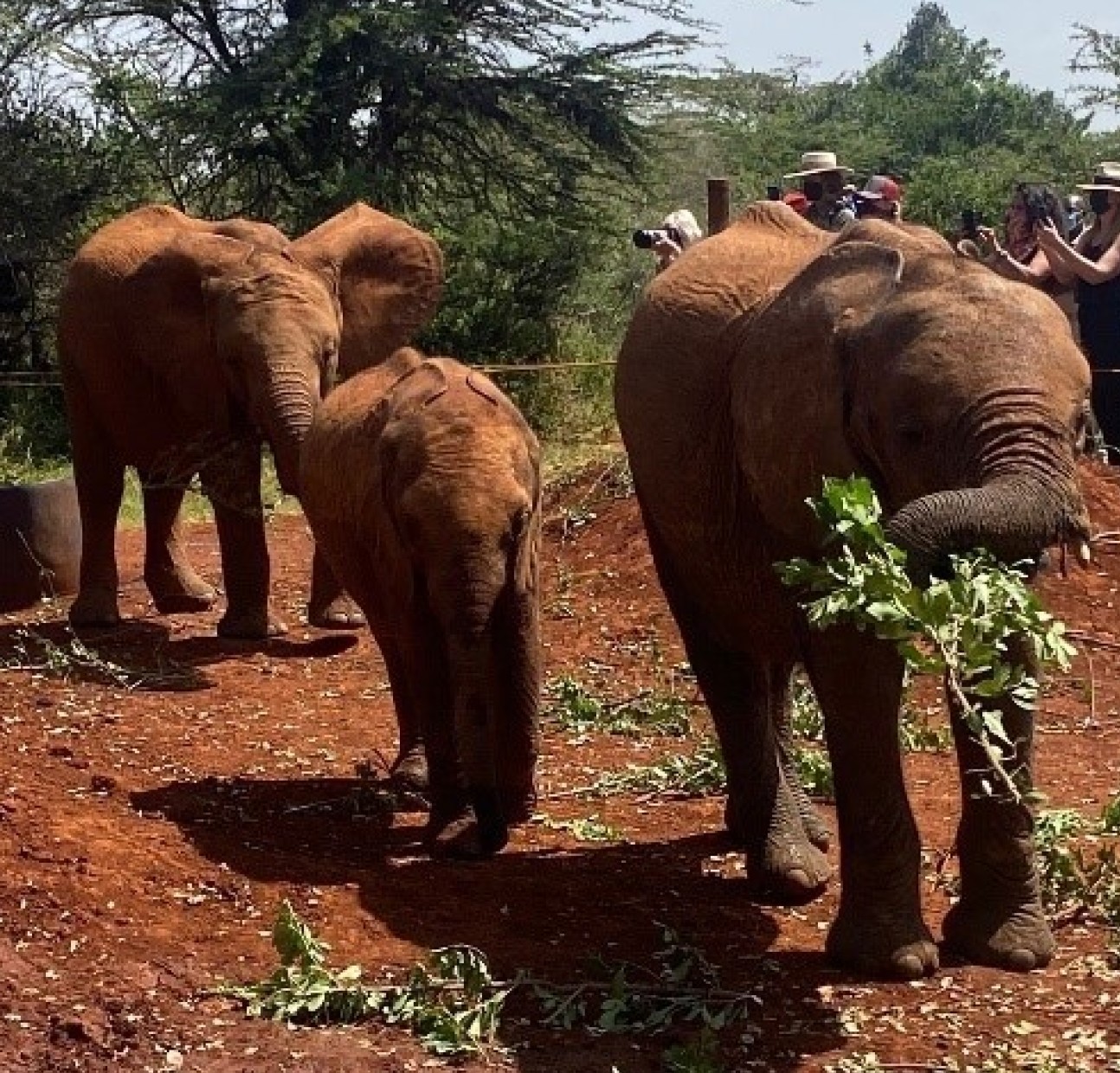Kenya Carbon Emission Reduction Tool (KCERT) workshop and country visit

Some of the 2050 Calculator programme delivery team travelled to Nairobi for the 2nd KCERT stakeholder engagement, ahead of the tool's imminent launch
Members of the 2050 Calculator programme delivery team travelled to Nairobi in January for the second Kenya Carbon Emission Reduction Tool (KCERT) stakeholder engagement workshop, ahead of the tool’s imminent launch.
Delivery team members Isabelle Hillson (BEIS), David Orr (Mott MacDonald), and Onesmus Mwabonje (Imperial College London) were hosted in-country by the programme’s Downstream Partner, Strathmore University. The workshop was well attended by key individuals from government departments, academia, and industry. Each sector lead is now writing a report, summarising the data, levers, and levels of ambition decided at the workshop.
As well as having a full diary of Calculator-related meetings, the delivery team had the chance to meet with other complementary donor programmes in the country, including the Energy Transition Council, Kenya Climate Innovation Centre and Climate Compatible Growth. It became clear that Kenya’s energy planning is in its infancy and a proliferation of tools are currently being created – for example, Low Emissions Analysis Platform, Long-Term Strategy, and Climate Compatible Growth. It’ll be imperative that the tools use the same units and data and are able to interact.
Alongside the event, the team revamped their programme-wide approach to stakeholder engagement. They met with senior government stakeholders, developed ideas for sharing knowledge in the region and to showcase at COP27, shared data with similar projects such as the UK PACT energy planning project and Climate Compatible Growth; and explored the potential use of the tool in an environmental technology master’s programme at Strathmore University.

A key lesson learned is that in-person meetings are far more productive than virtual calls – it’s a lot easier to tailor delivery to country contexts and spot synergies in-person.
 There were also some nice animals spotted during the trip! Our highlights include:
There were also some nice animals spotted during the trip! Our highlights include:
Hungry lions running into a bush, followed by a pack of zebras running out of the bush; being meters away from two white rhinos; and meeting orphaned elephants at the Sheldrick Wildlife Trust.

Background and programme progress
The 2050 Calculator is a bilateral capacity building programme that supports countries to build their own versions of the energy system model. The 2050 Calculator is a uniquely open, transparent and interactive model, originally developed in 2010 to help the UK Government plan the country's low-carbon transition in an evidence-based way. Since 2012, UK International Climate Finance has supported the creation of 19 national and 6 regional energy models, which have been used to develop nationally determined contributions (NDCs) and action plans, raise awareness, and inform long-term energy strategies. The current programme is developing Calculators, and/or helping with updates in the following countries:
- Vietnam (complete, launched)
- Malaysia (model complete)
- Nigeria (nearly complete)
- Thailand
- Philippines
- India (nearly complete)
- Kenya (nearly complete)
- Colombia
If you’re interested in learning more, please contact us: beis2050calculator@mottmac.com

Written by Isabelle Hillson, BEIS
Article text (excluding photos or graphics) © Imperial College London.
Photos and graphics subject to third party copyright used with permission or © Imperial College London.
Reporter
Press Office
Communications and Public Affairs
- Email: press.office@imperial.ac.uk
